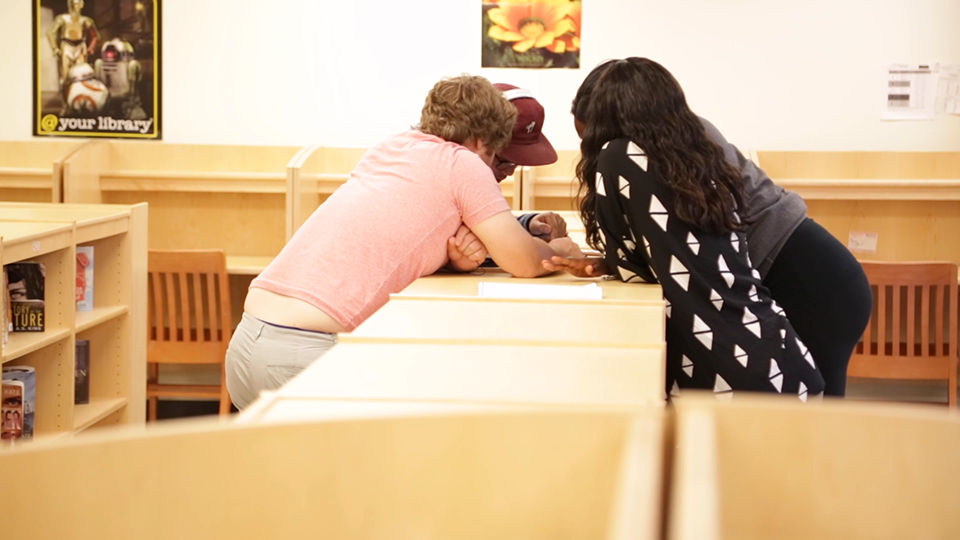What We Do: Design Projects >> Feedback & Assessment
Empowering Teachers to Empower Students: A Professional Learning Community Uses Research on Feedback to Deliver More Effective Instruction
It’s no secret that effective feedback is one of the most powerful ways to influence student learning. But what makes for effective feedback? And how can we consistently deliver it to our students? During the 2016–17 year, Eskolta partnered with the NYC Department of Education Affinity Group Field Support Center to use Professional Learning Communities (PLCs) to unpack the feedback process and answer these questions.
The work began with teams from City-As-School, Voyages Preparatory High School, and ELLIS Preparatory Academy exploring research-based feedback practices—such as one-on-one conferencing and using student-facing rubrics to set expectations for learning—during after-school PLC sessions facilitated by Eskolta. Research by John Hattie and Helen Timperley has shown that simply delivering feedback on its own has little effect on students; rather effective feedback gains its power from the context in which it is given, most particularly when students can put it to use.1 Using Hattie and Timperley’s research as a framework, the teams sought to give feedback that pushed students to answer three questions: 1) Where am I going? 2) How am I progressing? and 3) What do I do next? Between PLC sessions, teacher teams would test strategies out on their own, and then reconvene to share progress and map out next steps. Affinity PLC coach Heather Cardinale described the sessions as “rooted in both research and practical examples,” helping teachers connect academic theory to the daily work they were implementing back at their own schools.
One example of this balance can be seen in the work of ELLIS Preparatory Academy, a school serving 16- to 21-year-old newly-arrived immigrant English language learners. The team developed a strategy to help students monitor their progress toward individual learning goals by identifying next steps and specific areas of improvement. Reflecting on her work, ELLIS instructional coach Pamela Gordon highlighted the value of connecting cognitive psychology to her practice. “I really enjoyed being introduced to the materials in November, followed by the process of working with colleagues to design ‘bite-sized’ feedback approaches,” she said. By the end of the year, teachers at ELLIS saw real increases in motivation: students who had once shied away from feedback were now using it to improve their skills and revise work. The PLC sessions were an instrumental step in these gains, helping teachers recognize that feedback is not just about getting students to do a task correctly, but rather helping students see the bigger context of their learning, including the skills and steps needed to improve.
_________________
1Hattie, J., Timperley, H. (2007, March). The Power of Feedback. Review of Educational Research, 77 (1), 81-112.

